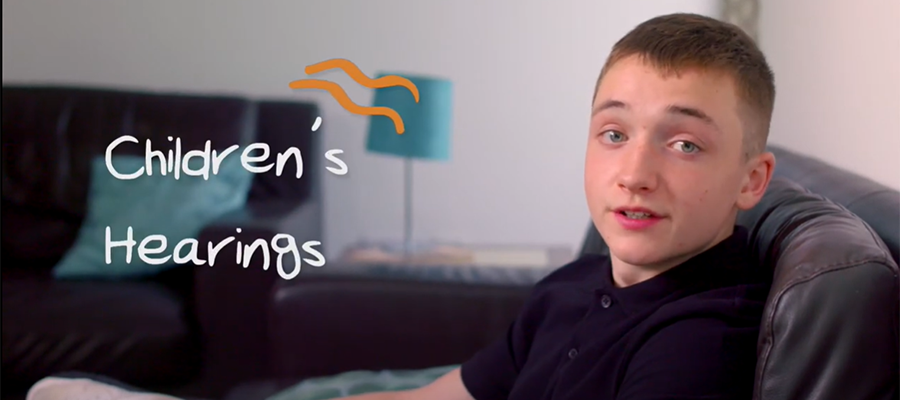How Our Hearings Our Voice members worked around COVID-19 restrictions to help children and young people

When the COVID-19 pandemic hit, this could have derailed plans children and young people from Our Hearings, Our Voice (OHOV) had been working on to provide information on Compulsory Supervision Orders. Scottish Children’s Reporter Administration’s (SCRA) Participation Officer Jennifer Orren, explains how the OHOV board members worked together and kept going to co-design a film to help children and young people.
While working with Our Hearings, Our Voice (OHOV), an independent board for children and young people from across Scotland who have experience of the Children’s Hearings System, the young people expressed to me that it wasn’t always clear how Compulsory Supervision Orders came about, what these meant, what support young people were entitled to, and what their rights were. Board members felt that the best way to get the right information across was by creating a short film with essential information and good visuals and for them to participate in the development of the script.
Although we have launched a number of animated info films (in partnership with care experienced young people), on this occasion young people opted for a full film with actors similar to the ones we have already developed for ‘Going to a Hearing’ and ‘Pre-Hearing Visits’. Language was a key consideration – getting the right information across in a way that was accessible and easy to understand without making the film too long was important. They also wanted someone young and relatable to appear in the film with a conversational kind of approach, rather than an adult talking viewers through what is involved.
We identified a suitable film company and got to work! OHOV board members and Hearings-experienced Modern Apprentices from SCRA helped to develop the design and approach and create a script with input from the film company and our Practice Team. A good script takes time: it is essential to make sure it is factually correct, as well as engaging, supportive and informative with the right messages being shared – and very importantly, not too wordy, boring or long!
Working around pandemic restrictions
Just as we had completed the script and were getting ready to film, the COVID-19 pandemic hit. This initially delayed the making of the film but, we were able to find a workaround by reducing the numbers of people physically present when filming needed to be done and filming in a socially distanced way. Usually when making a film, the young people involved in the ideas and development attend as well as SCRA staff, plus the film crew and actors. On the day of filming only the actor and essential crew were present which made it possible to create the film even during restrictions.
We can’t feature young people who have been through the Children’s Hearings System in filming. This is partly to do with legislation and partly because of consent issues around permanency of the film. This applies to everything we film, and to find the best fit we work with Hearings-experienced young people to identify the right person to star in the role. Usually we do this by having auditions where Hearings-experienced children and young people attend to choose the actor, but we had to do it via short film clips sent to us.
The filming took place in September 2021. We continued to consult with our team of Hearings-experienced experts to edit the film, make sure we had all of the right information in it, including some wording on the screen to emphasise important points, like the right to advocacy. Once it was complete, we created a British Sign Language version with subtitles.
There’s more to do to inform children and young people of their rights
Whilst this is not the way we usually co-design a film for children and young people, we are proud to have been able to deliver this essential film during the pandemic as a team! We launched the film in January 2022 and have had great feedback from children, young people, and partner agencies. The film has been so well received and continues to get a high number of views on the website.
In the coming year, after further consultation work with the OHOV Board, we are hoping to work with Hearings-experienced children and young people to develop new information materials focusing on Coming Off Your Compulsory Supervision Order.
The views expressed in this blog post are those of the author/s and may not represent the views or opinions of CELCIS or our funders.
Commenting on the blog posts: sharing comments and perspectives prompted by the posts on this blog are welcome.
CELCIS operates a moderation process so your comment will not go live straight away.


